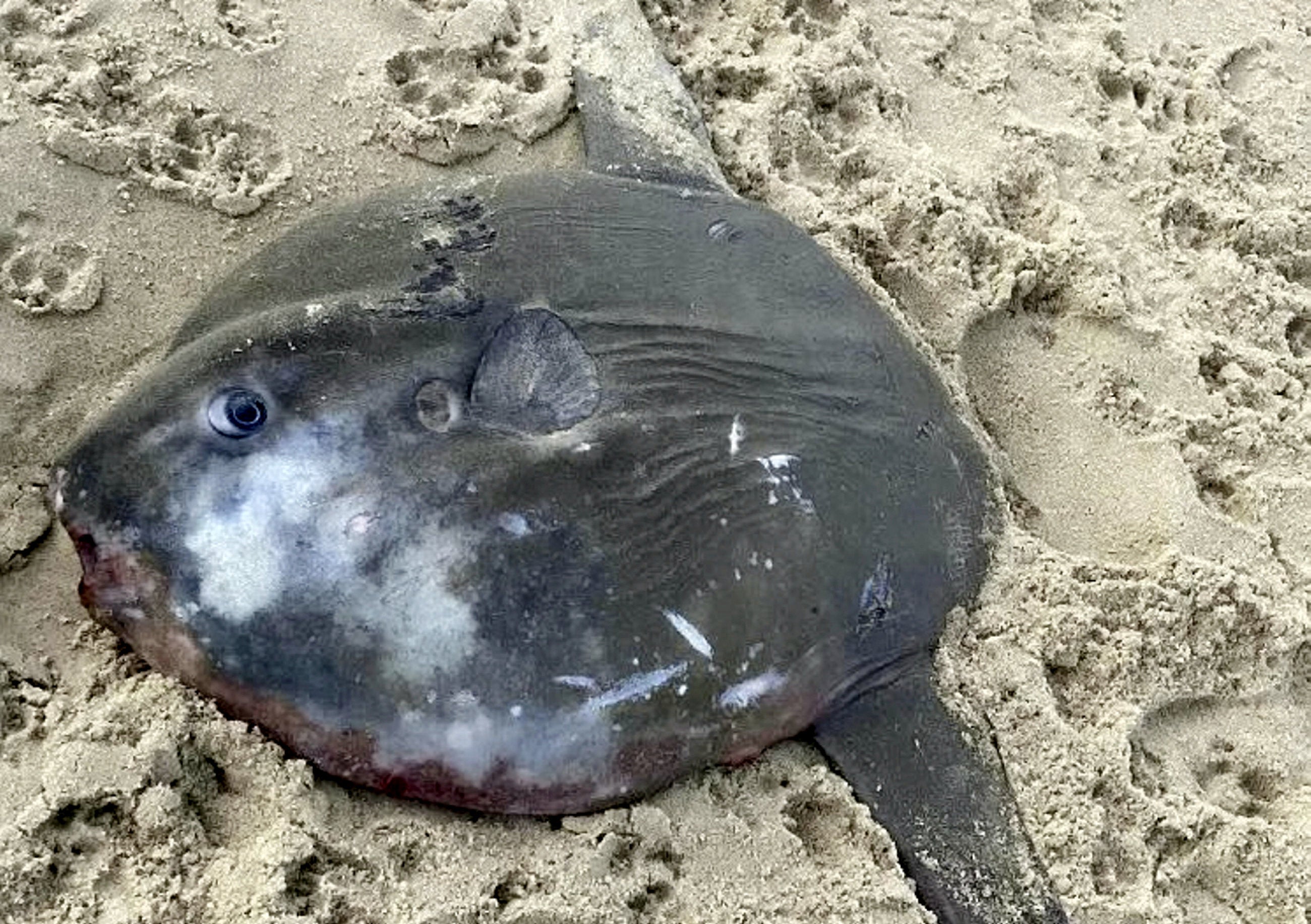Exotic-looking sea creature normally found in tropical waters washes up on UK beach
Katherine Hawkes initially thought the huge sea creature was a 'seal pup' - but when fully grown the Sunfish can grow up to three meters high and weigh up to two tonnes

A beachgoer was stunned to come across an exotic-looking sea creature normally found in tropical waters after it washed up on the British coast.
Katherine Hawkes, 39, spotted the juvenile Sunfish, generally native to oceans around the equator, while walking on Great Yarmouth beach, Norfolk, on new year's day.
The remarkable animal, which can often be found basking in the rays of the hot sun, is the largest bony fish in the world and has an unusual back fin, shaped like a bullet.
Keen photographer Katherine first thought the fish was a “seal pup” and said she was “excited” to take a snap of it, despite recognising it had passed away.
She said: “It is really odd-looking and while it is sad it had died it was exciting to see as they are so unusual to find in this area.”
While sunfish can grow three metres high and weigh more than two tonnes, this specimen was a baby measuring about 1.5m tall.
Rob Spray, the joint coordinator of conservation charity Seasearch East, said the fish likely died due to a lack of food and the cold temperatures of the North Sea.
He said: “The sunfish is not something we commonly see in the North Sea.
“Even though it was a juvenile it is quite a big fish to find in these waters and it is likely it got stranded and ran out of things to eat. It is an amazing species.”
It may look terrifying, but North Sea swimmers do not have anything to fear as sunfish mainly eat jellyfish.
Sunfish are categorised as vulnerable in the International Union for Conservation of Nature Red List of Threatened Species.
Mr Spray added that its presence on a Norfolk beach could be a sign of warming oceans bringing southern species into colder waters.
Subscribe to Independent Premium to bookmark this article
Want to bookmark your favourite articles and stories to read or reference later? Start your Independent Premium subscription today.

Join our commenting forum
Join thought-provoking conversations, follow other Independent readers and see their replies